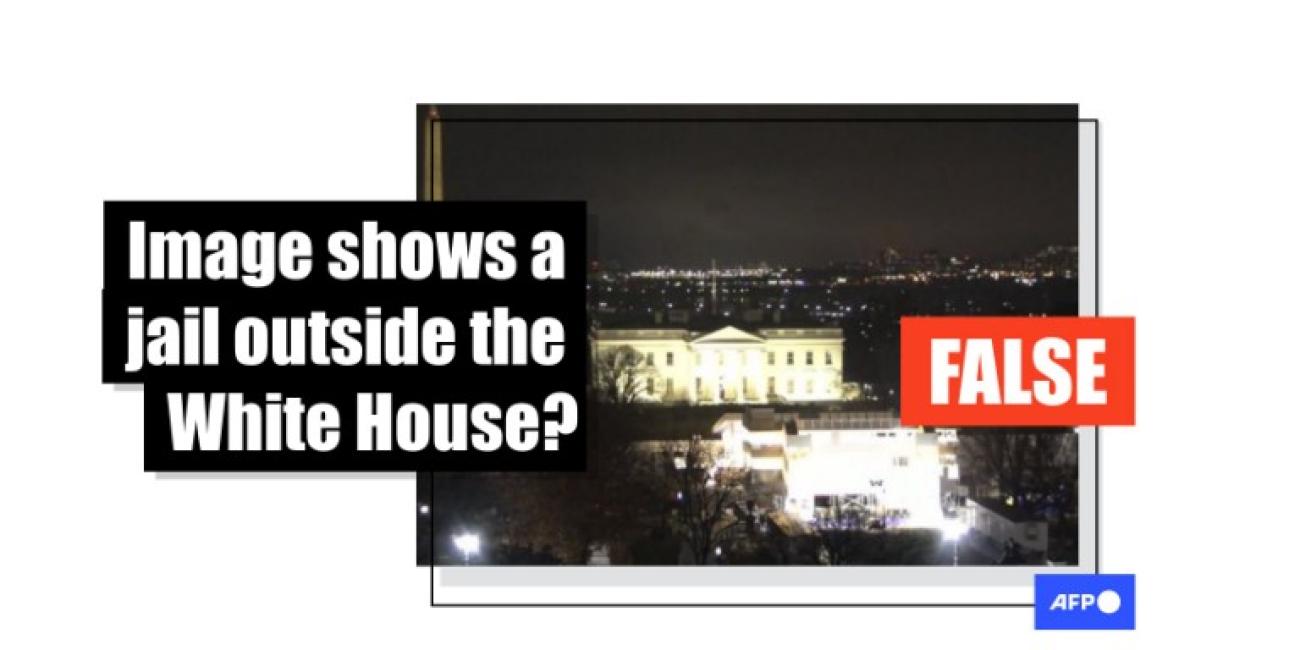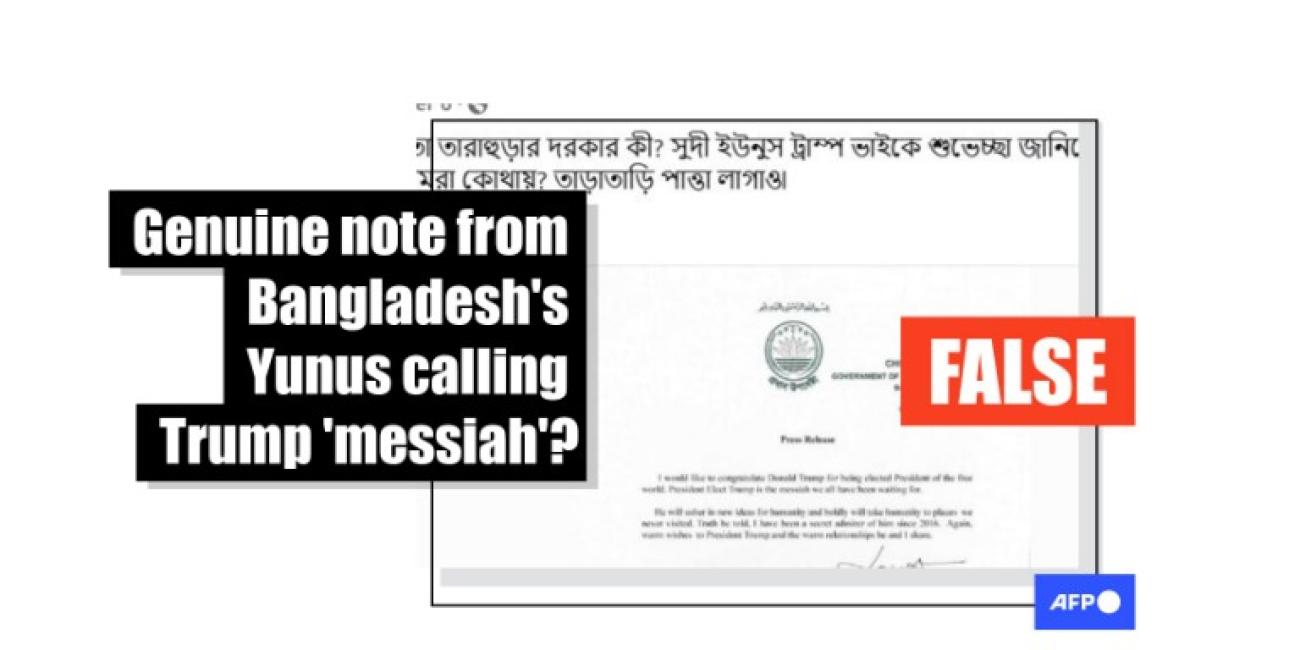
( AFP / ANGELA WEISS)
Elon Musk's Starlink falsely accused of rigging US election
- This article is more than one year old.
- Published on November 13, 2024 at 22:25
- 5 min read
- By Bill MCCARTHY, AFP USA
"Elon Musk used Starlink to hack our elections so he can have nice things while inflicting pain on Americans. Are we really going to turn a blind eye to what happened and let the worst people among us run the country," says a November 10, 2024 post on X.
The post includes a snippet from a local news segment mentioning Starlink -- the satellite-based internet service operated by SpaceX -- in reference to California's Tulare County, where President-elect Trump won approximately 60 percent of the vote.
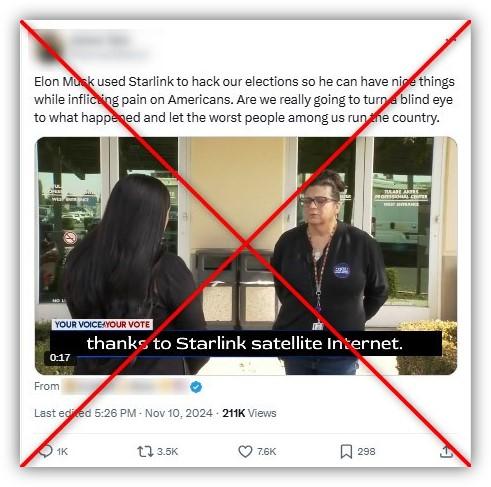
The earliest post suggesting Musk used Starlink to rig the results came on Election Night, according to NewsGuard, an organization that monitors misinformation.
The claims accelerated in the week that followed Trump's victory over Democratic Vice President Kamala Harris, spreading across X and other platforms, such as Threads. In one widely shared video, a woman claims California and several critical swing states used Starlink "to tally up and to count ballot votes."
The allegations echo conspiracy theories about Italian satellites allegedly switching votes in the 2020 election, which officials in Trump's first administration entertained and explored after his loss to President Joe Biden.
Musk, who also owns X, endorsed Trump in July and reportedly spent over $100 million to boost his campaign. On November 12, Trump named him alongside entrepreneur Vivek Ramaswamy to lead a new "Department of Government Efficiency" aimed at overhauling the US government.
But online claims that his Starlink satellites tilted the election to Trump are baseless.
"I don't know precisely what they think the mechanism is that could have Starlink interfere with the tabulation of votes, but that would be impossible," said Charles Stewart, an elections systems expert at the Massachusetts Institute of Technology (archived here). "The machines aren't connected to the internet."
David Becker, founder and executive director of the Center for Election Innovation & Research, agreed that an election-changing hack carried out through Starlink would not be possible (archived here).
"We have nearly 10,000 different election jurisdictions, with a large variety of voting machines that are not connected to the internet during voting," Becker said, adding that approximately 97 percent of all US voters made their selections on paper ballots that can be recounted and hand-audited to ensure the machines' accuracy (archived here).
"If anyone tried to interfere with the machines to rig the election, it would be discovered through multiple means," he said. "This, quite simply, did not happen, and could not happen."
Jen Easterly, director of the Cybersecurity and Infrastructure Security Agency, said in a November 6 statement that there was "no evidence of any malicious activity that had a material impact on the security or integrity of our election infrastructure" (archived here).
Swing states
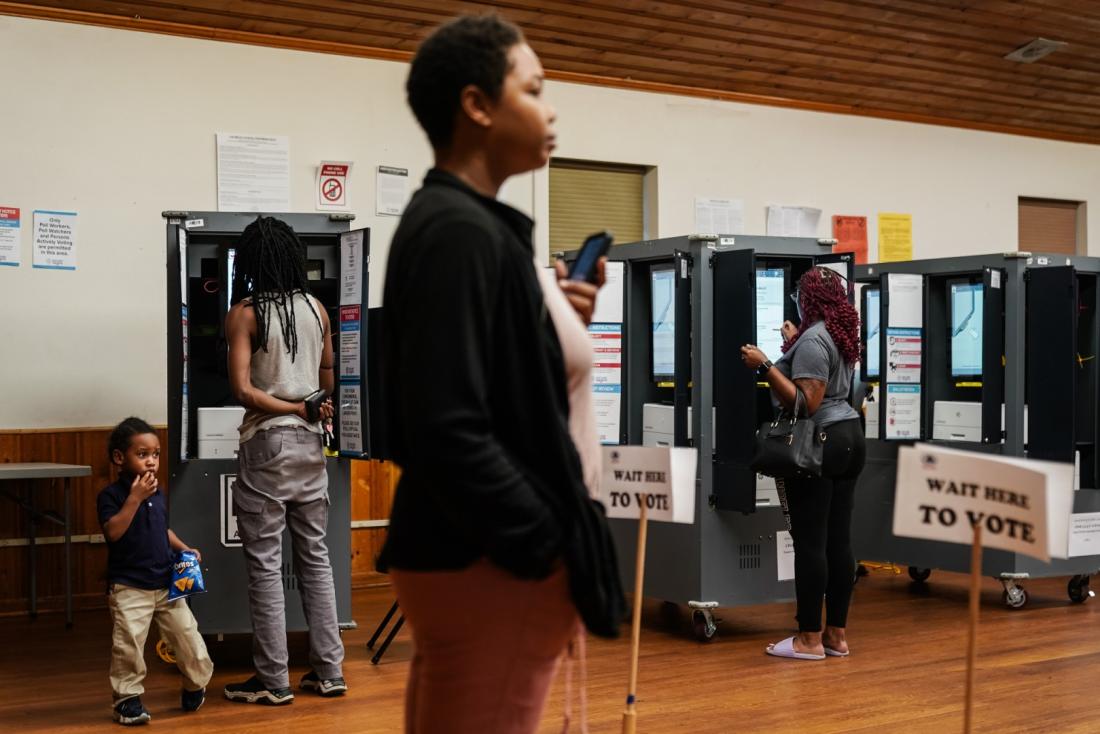
Elections websites for each of the pivotal swing states of Arizona, Georgia, Michigan, Nevada, North Carolina, Pennsylvania and Wisconsin say the machines their jurisdictions use to mark and tabulate ballots are not connected to the internet (archived here, here, here, here, here, here and here).
Officials from Georgia, North Carolina, Pennsylvania and Wisconsin further confirmed to AFP that they do not use Starlink's satellite-based internet services.
"I've described this particular conspiracy as 100 percent bunk, because it is," said Mike Hassinger, a spokesman for Georgia's secretary of state. "We don't use Starlink and never have."
The state's equipment is air-gapped, meaning it is isolated from external networks, Hassinger said, and there is no evidence of any fraud that affected the result.
Patrick Gannon, public information director for the North Carolina State Board of Elections, said his state also has "no evidence of any alteration of votes by anyone."
While each state manages its election infrastructure, federal agencies and experts have for several years recommended that voting machines be isolated from the internet to protect against external threats.
Some states have in the past used modems to help report unofficial results after polls have closed, said Genya Coulter, a senior elections analyst at the nonprofit OSET Institute. And in scattered cases, counties have relied on internet connections to speed up their electronic poll books, which are used to check in voters and ensure people are not voting more than once.
But electronic poll books are different from the machines used to record or tally votes, Coulter told AFP.
"Poll books are not tabulators," she said. "The vast majority of, if not all, ballot marking devices and tabulators are not connected to the internet by any means -- whether WiFi, mobile, or Starlink Satellites. Full stop."
Aaron Thacker, a spokesman for the Arizona secretary of state, told AFP the state's Coconino, Apache and Navajo counties used Starlink systems as part of a pilot program "to support electronic pollbook synchronization."
He said these pollbooks did not collect or count votes. Arizona's elections systems are also air-gapped.
Tulare County
Another jurisdiction that employed Starlink to support its elections infrastructure was California's Tulare County.
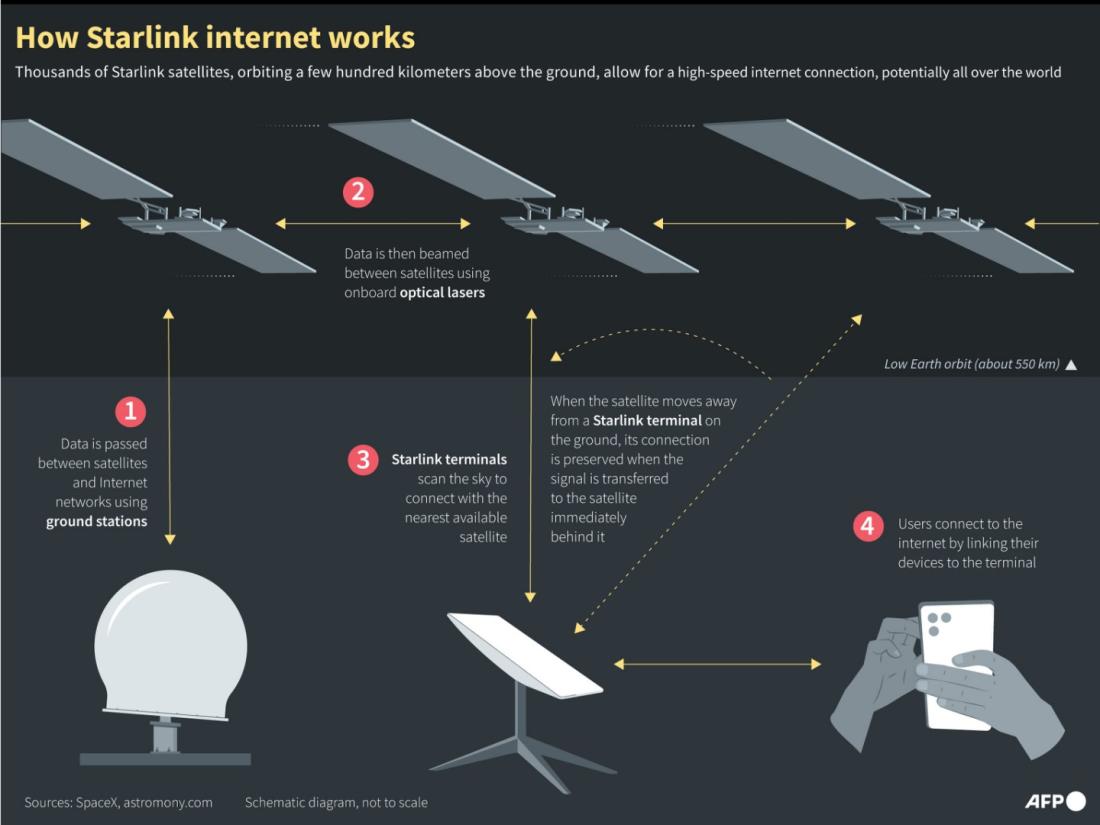
Several posts claiming Musk's technologies were used to rig the election cited a local TV news segment in which a reporter told viewers that Michelle Baldwin, the county's registrar of voters, said "access to connectivity was improved this year thanks to Starlink satellite internet" (archived here).
But in a statement to AFP, Baldwin said those details needed clarification.
In California, it is illegal for any part of the voting system to establish an internet connection (archived here).
"To ensure a reliable and stable connection for voter check-in, we utilized Starlink to enhance our internet connection," Baldwin said. "However, I want to emphasize that this connection is strictly for voter check-in purposes only and in no way a part of our voting system."
Baldwin explained that their system is air-gapped and that once votes all votes are tabulated, the results are compiled into electronic files that are securely transferred to the California secretary of state's server.
Stephanie Hill, the county's systems and procedures analyst, provided AFP with a matching statement.
Representatives from Dominion Voting Systems, Election Systems & Software and Hart Intercivic -- three major companies that make election technologies -- also told AFP their systems do not link to the internet.
"Hart has no relationship with Starlink in any way and no Hart voting system can connect to Starlink," a Hart spokesperson said.
Coulter, the OSET Institute expert, noted that Starlink satellites have been deployed for years -- including during other elections, such as the 2022 midterms -- without sparking warnings or concerns.
"It's a highly convenient scapegoat," she said.
AFP contacted Starlink for comment, but no response was forthcoming.
AFP has debunked other misinformation about the election here.
Copyright © AFP 2017-2026. Any commercial use of this content requires a subscription. Click here to find out more.
Is there content that you would like AFP to fact-check? Get in touch.
Contact us


